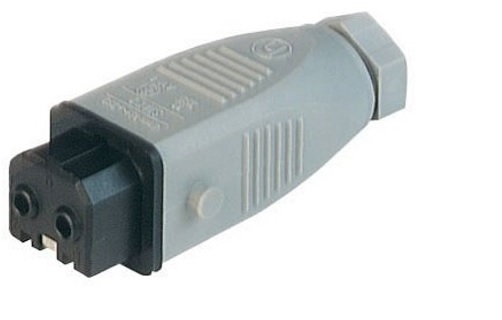Connecting the Dots: Selecting the Right Industrial Connectors for Your Automation System
When you've invested in top-notch equipment for your industrial automation system the last thing you want is for your system to go haywire because of some loose connections.
Robots whir, sensors collect data, and everything seems primed for peak efficiency. But then, a seemingly minor issue arises – a faulty connection between two crucial components. Suddenly, your entire system grinds to a halt, production slows, and frustration sets in.
This scenario highlights the critical role of industrial connectors in keeping your automation system running smoothly. These small yet mighty components ensure reliable communication and data flow between various components, from sensors and actuators to controllers and power supplies. Choosing the right connectors might seem like a technical detail, but it significantly impacts the performance, safety, and overall success of your industrial automation system.
Understanding What Your Industrial Automation System Needs
Before diving into connector specifics, it's essential to understand your unique automation system requirements. Here are some key factors to consider:
- Environmental Conditions: Where will the connectors be located? Will they be exposed to extreme temperatures, dust, moisture, or vibrations? Selecting connectors with the appropriate ingress protection (IP) rating ensures they can withstand the environment.
- Voltage and Current Requirements: What voltage and current levels will the connectors handle? Choosing connectors with insufficient capacity can lead to overheating and potential damage.
- Number of Connections: How many connections do you need within your system? Selecting connectors with the right number of pins ensures proper functionality.
- Connector Type: Different connector types offer various functionalities. Common choices include circular connectors for power and data transmission, rectangular connectors for control signals, and sensor connectors for specific sensor types.
Understanding Connector Types and Functions
Industrial connectors come in various shapes, sizes, and configurations, each suited for specific purposes. Here's a breakdown of some common types:
- Circular Connectors: These robust connectors are ideal for harsh environments due to their ability to withstand dust, moisture, and vibrations. They are commonly used in robotics, power distribution, and sensor applications within industrial automation systems.
- Rectangular Connectors: These versatile connectors offer a high pin count, making them suitable for transmitting complex data signals. They are often used in control cabinets, human-machine interface (HMI) connections, and industrial computers within automation systems.
- Power Connectors: Designed specifically for high-current applications, these connectors ensure safe and efficient power transmission within industrial automation systems. They come in various amperage ratings to accommodate different power requirements.
- Sensor Connectors: These specialized connectors are built for transmitting low-voltage signals from sensors used in industrial automation systems. They are often shielded to minimize electrical interference and ensure accurate data transmission.
Industrial Connector Powerhouses: Cnlinko and Hirschmann
The world of industrial connectors boasts a variety of reliable manufacturers, each with a distinct reputation and product range. Here, we delve into two prominent brands: Cnlinko and Hirschmann.
Cnlinko: Innovation for Modern Applications
Founded in 2004, Cnlinko is a rising star in the industrial connector market. This Chinese company emphasizes research and development, focusing on innovative solutions for modern automation needs.
Their core values center on providing high-quality, cost-effective connectors while maintaining excellent customer service.
Cnlinko's focus on affordability and innovation makes them an interesting choice for budget-conscious businesses seeking reliable connectors for their industrial automation systems.
Hirschmann: A Legacy of Quality and Reliability
Hirschmann, a brand under the Belden umbrella, boasts a rich history dating back to 1908. They are renowned for their exceptional quality and unwavering commitment to reliability.
Hirschmann prioritizes rigorous testing and adheres to strict industry standards, ensuring their connectors perform flawlessly in even the most demanding industrial environments. Their core values revolve around providing dependable connectivity solutions that contribute to the success of their customers.
Hirschmann's focus on premium quality and unwavering reliability makes them the go-to choice for companies where downtime is simply not an option.
Choosing the Right Brand for You
Both Cnlinko and Hirschmann represent excellent choices for industrial connector needs. If you prioritize affordability and innovative solutions for modern automation systems, Cnlinko might be a perfect fit.
However, if your top concerns are absolute reliability and a proven track record in harsh environments, Hirschmann might be the better option.
Ultimately, the best brand depends on your specific application requirements and budget considerations.
Building a Reliable Connection: Additional Tips
Here are some additional pointers for selecting and using industrial connectors effectively:
- Consult the Manuals: Always refer to the user manuals for your industrial automation system components, as they often specify compatible connector types.
- Prioritize Quality: While initial cost might be a factor, opt for high-quality connectors from reputable brands. They offer greater reliability, durability, and a lower risk of malfunctions that could disrupt your entire automation system.
- Consider Maintainability: Choose connectors that are easy to install, maintain, and replace when needed. This minimizes downtime and ensures a smooth workflow.
Building a Reliable Connection Network for Your Industrial Automation System
By carefully selecting connectors based on application needs, environmental factors, and quality considerations, you can create a robust and reliable connection network within your industrial automation system. This translates to smoother operation, increased productivity, and fewer downtime occurrences.
Remember, the right industrial connectors ensure seamless communication and efficient operation. For a wider selection of high-quality industrial connectors, cable assemblies, and other automation essentials, check out our available items here at Products For Automation. Don't let a faulty connection become the weak link in your industrial automation chain.






Comments
Post a Comment